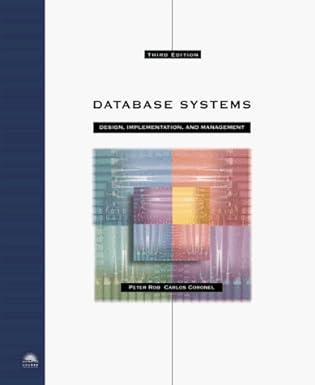Question
Here i have C codes for a parent-children communication using a pipe, please answer me the below questions regarding the code you see. #include #include
Here i have C codes for a parent-children communication using a pipe, please answer me the below questions regarding the code you see.
#include
#include
#include
int main()
{
int pipefd[2];
pid_t pid1, pid2;
/* create the pipe */
pipe(pipefd);
/* fork child 1 */
pid1 = fork();
if(pid1 == 0)
{
/* child 1 */
close(pipefd[0]); /* close read end */
dup2(pipefd[1], 1); /* redirect stdout to pipe */
execlp("ls", "ls", "-F", (char*)NULL); /* execute */
}
/* fork child 2 */
pid2 = fork();
if(pid2 == 0)
{
/* child 2 */
close(pipefd[1]); /* close write end */
dup2(pipefd[0], 0); /* redirect stdin from pipe */
execlp("nl", "nl", (char*)NULL); /* execute */
}
/* parent process */
/* close both ends in parent */
close(pipefd[0]);
close(pipefd[1]);
/* wait for the 2 children to end */
wait(NULL);
wait(NULL);
/* message to mark end of parent process, can be commented out if not needed */
printf("Parent process end ");
return 0;
}

Step by Step Solution
There are 3 Steps involved in it
Step: 1

Get Instant Access to Expert-Tailored Solutions
See step-by-step solutions with expert insights and AI powered tools for academic success
Step: 2

Step: 3

Ace Your Homework with AI
Get the answers you need in no time with our AI-driven, step-by-step assistance
Get Started


